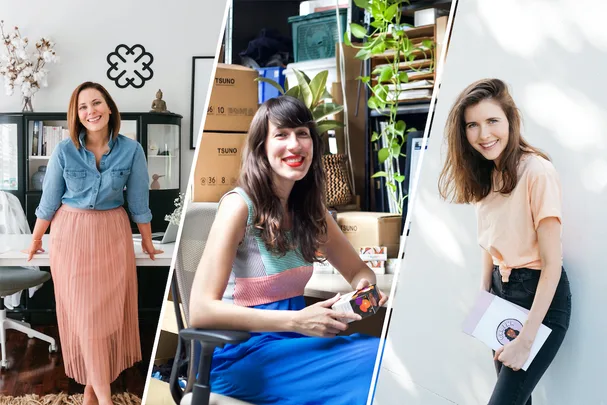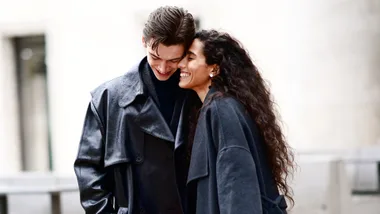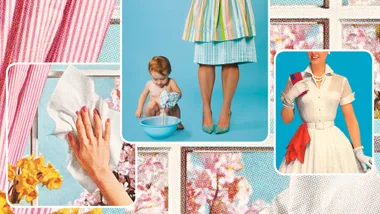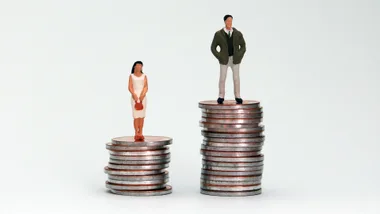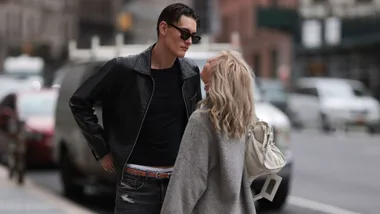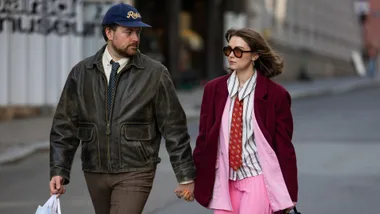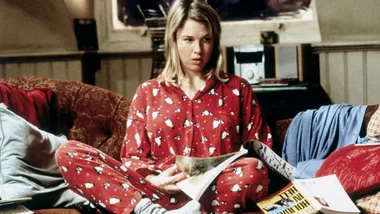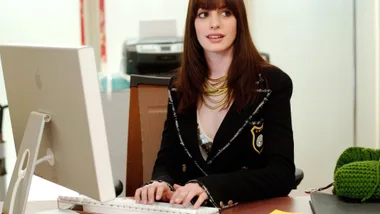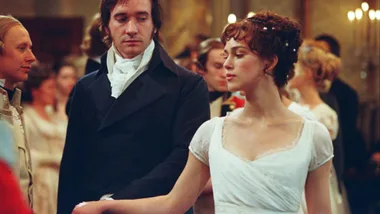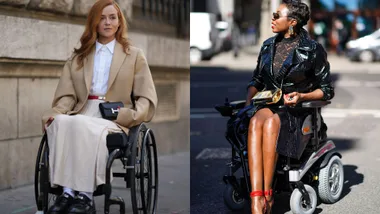Three social entrepreneurs reveal how they built businesses that do good…
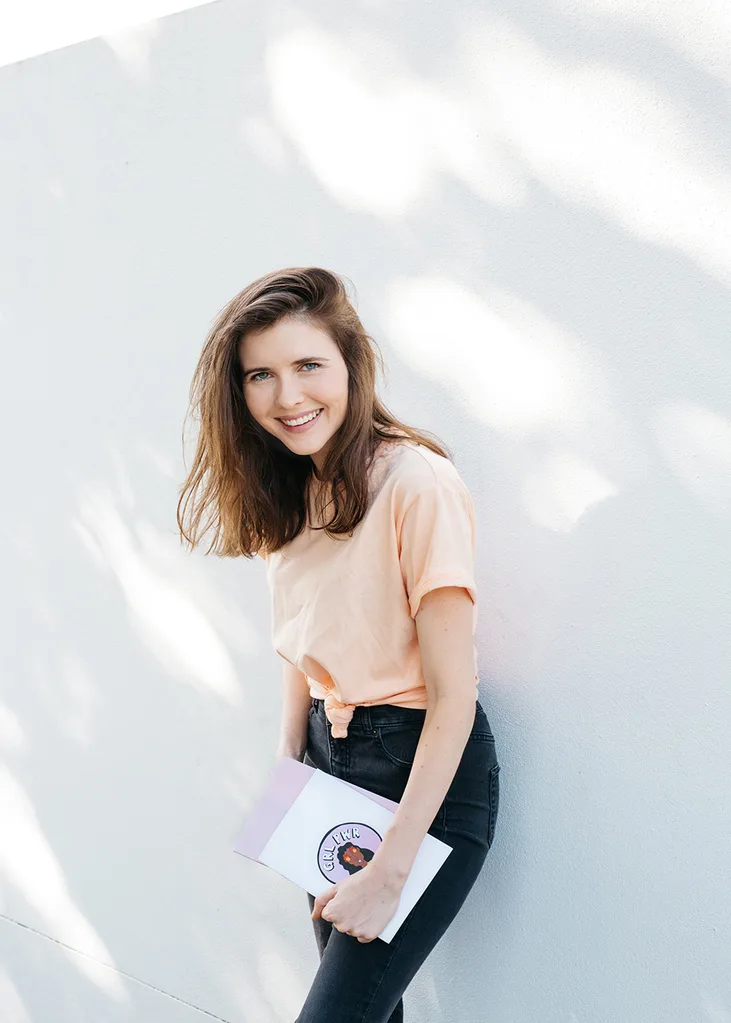
LAUREN SHUTTLEWORTH ,33, WORDS WITH HEART
It was a volunteering trip to Kenya that made Lauren Shuttleworth want to start a social enterprise supporting women’s education, but it was a notebook that galvanised her to do it. Walking past a stationery store, she saw a notebook emblazoned with the slogan “Boys, heels, blogs – let’s get back to the basics”. “I thought, ‘Surely we can do better than that,’” says Shuttleworth, who launched her stationery company Words With Heart in 2014. “There’s a really strong synergy between stationery and funding education. I love the idea of entrepreneurship meeting charity.”
It’s a simple idea: every stationery product sold funds a specific number of education days for women and girls in Africa and Asia. In the past four years, Words With Heart has provided 100,000 days of education to females, and Shuttleworth hopes to fund one million days by the end of 2020. “I often think of how education has helped me; it’s not just about going to university and getting a job, but simple things like being able to read the back of a medicine bottle,” explains Shuttleworth, who studied international business at university. “Literacy gives us so much.”
In turn, educated women give back to their communities and countries. “They call it the girl effect. If a woman is educated, she will live longer, have fewer and healthier children and will earn more,” says Shuttleworth, who is currently working on launching in the US market and hitting her million-days-of-schooling goal. “[Barriers to female education are] a huge issue, but even if I make just a dent, it will be a meaningful impact.”
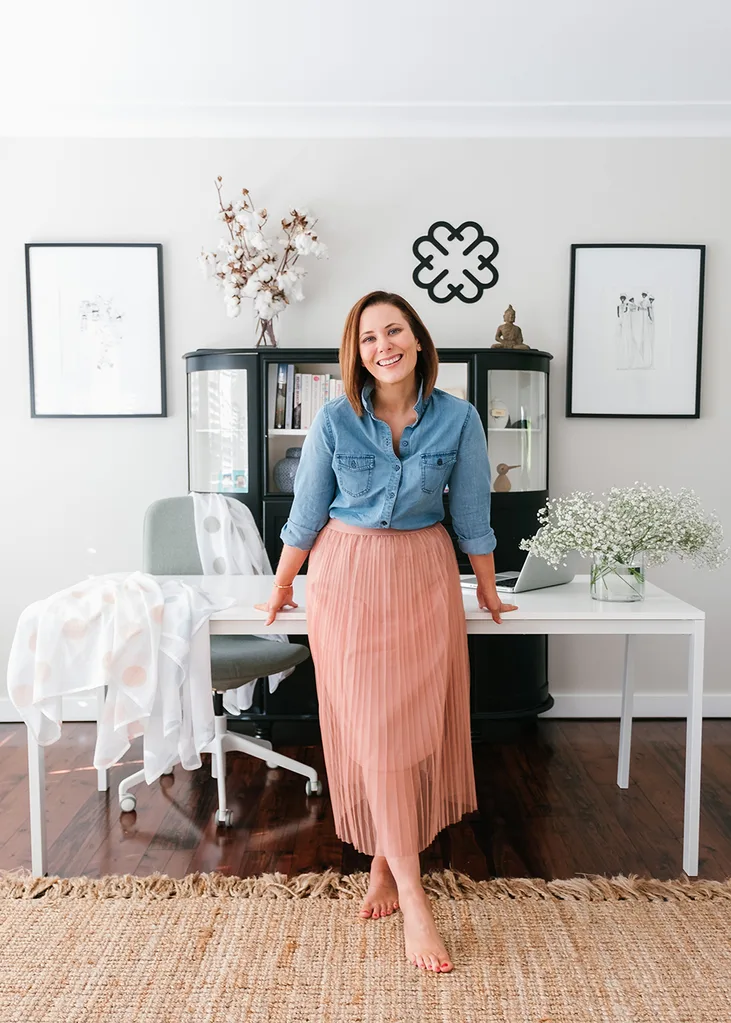
ROBYN JONES, 38, MAMA MAYA
When Robyn Jones gave birth to her first son Hugo in 2011, the umbilical cord was wrapped around his neck and he was blue. Hospital staff resuscitated him and seven years later he’s healthy and happy. Things could have been different for Jones and her son if he was born in a developing country. “I was so lucky to give birth in a private hospital in Sydney,” she says. “Australia’s maternal death rate is six in 100,000. In countries like Nigeria, it can be 800 in 100,000.”
After Hugo’s birth, Jones discovered the work of the Birthing Kit Foundation, a charity that provides safe birthing kits to women in remote areas of developing countries. When her second son Remy was born in 2014, Jones decided to launch a business that supported the Birthing Kit Foundation and promoted maternal health. “I was sitting in Remy’s bedroom looking at a pile of muslin wraps, and I thought about creating a great-quality muslin wrap and having a one-for-one model with the Birthing Kit Foundation,” says Jones, who launched Mama Maya in 2016.
For every wrap purchased, Mama Maya donates a safe birthing kit to a mother in a developing country, from Papua New Guinea to India. So far, Jones has donated 7000 birthing kits, which includesoap, gloves, cord ties and a sterile blade. “I’m so proud of the number of mothers we’ve been able to help,” she says of Mama Maya, which is now B Corp-certified. “The certification means we’re committed to using business as a force for good.”
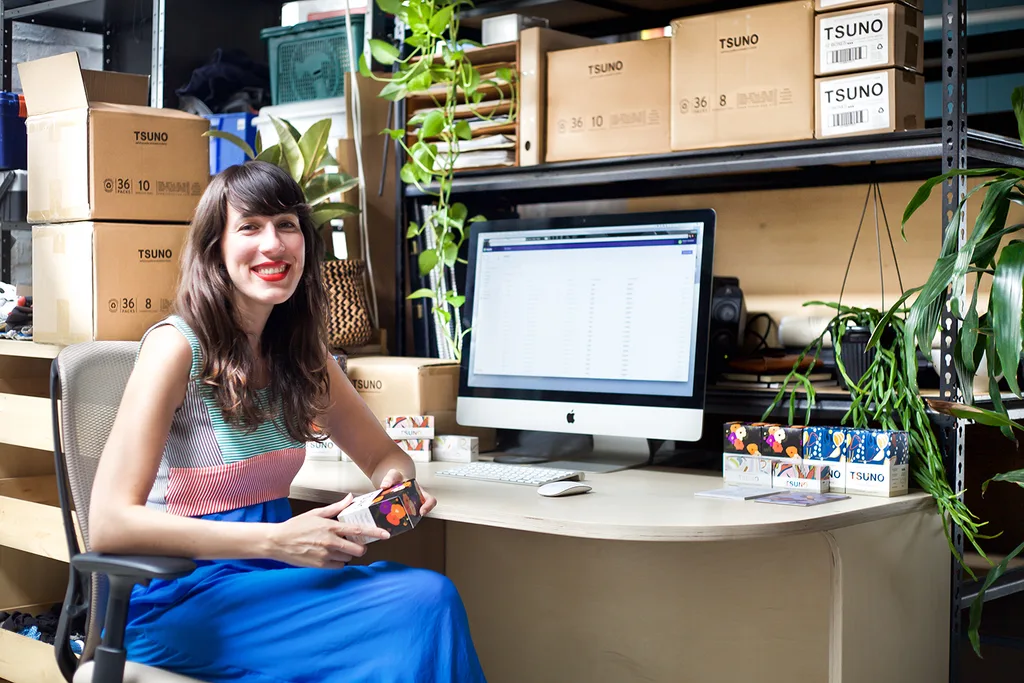
ROZ CAMPBELL , 32 , TSUNO
When Roz Campbell unexpectedly got her period while on holiday in Finland in 2012, she didn’t have any pads or tampons with her, causing her to experience what many women in developing countries go through every month. After the trip, Campbell went to a lecture by Chantelle Baxter in her industrial design class.
“Chantelle started One Girl, a charity providing education scholarships to girls in Sierra Leone and Uganda,” Campbell explains. “She realised that the girls weren’t attending for up to a week every month because of their periods.”
Studies have shown that girls can miss up to 12 weeks of school a year because they don’t have access to safe menstrual products. To address the issue, One Girl started a program called LaunchPad, supplying disposable eco-friendly menstrual products to the girls it sponsors. Campbell was so inspired by the program she decided to launch a social enterprise of her own, donating half of the profits to One Girl. Tsuno was born in 2014, selling sustainable bamboo-fibre sanitary pads and organic cotton tampons. “The hardest part has been getting the business to the point where it’s sustainable. For the first few years it was quite a depressing reality check because I wasn’t making a profit and the whole point was to donate half the profit,” says Campbell.
She turned her energy back to being charitable, donating excess product to homeless shelters and asylum-seeker resource centres in Australia. When business picked up, she began matching the donations. From January to September this year, Tsuno matched the donations of 8537 boxes of pads and tampons to charities, and sponsored the education of 43 girls in Sierra Leone and Uganda. “I am driven by the number of girls we’ve helped and the opportunities we’ve provided,” says Campbell. “If you lined up all of the girls, that’s a class.”
